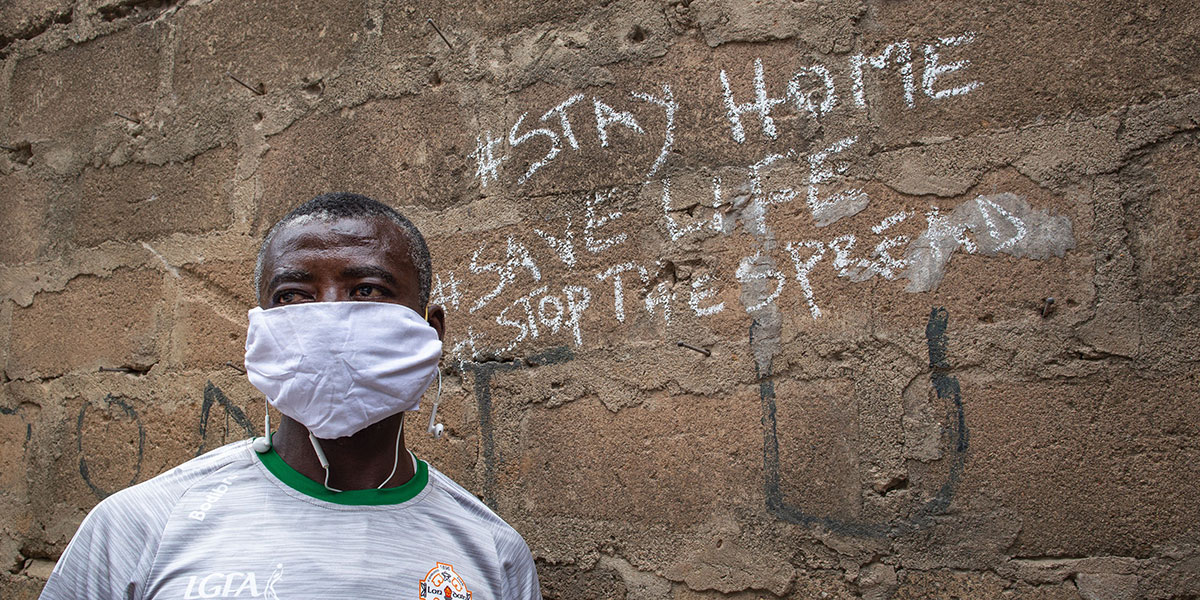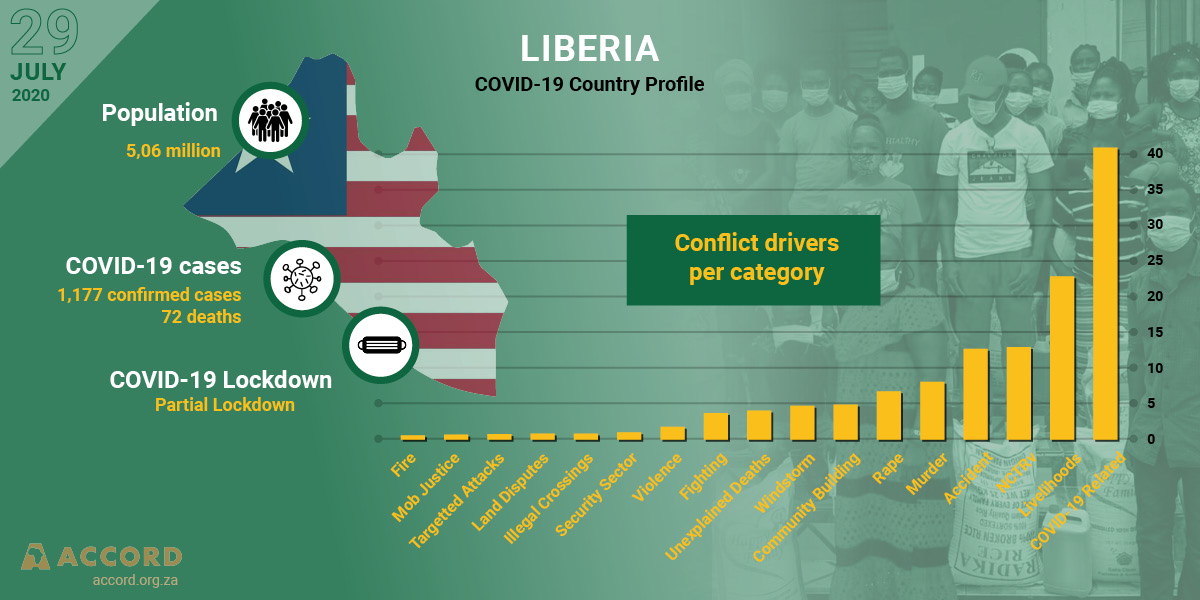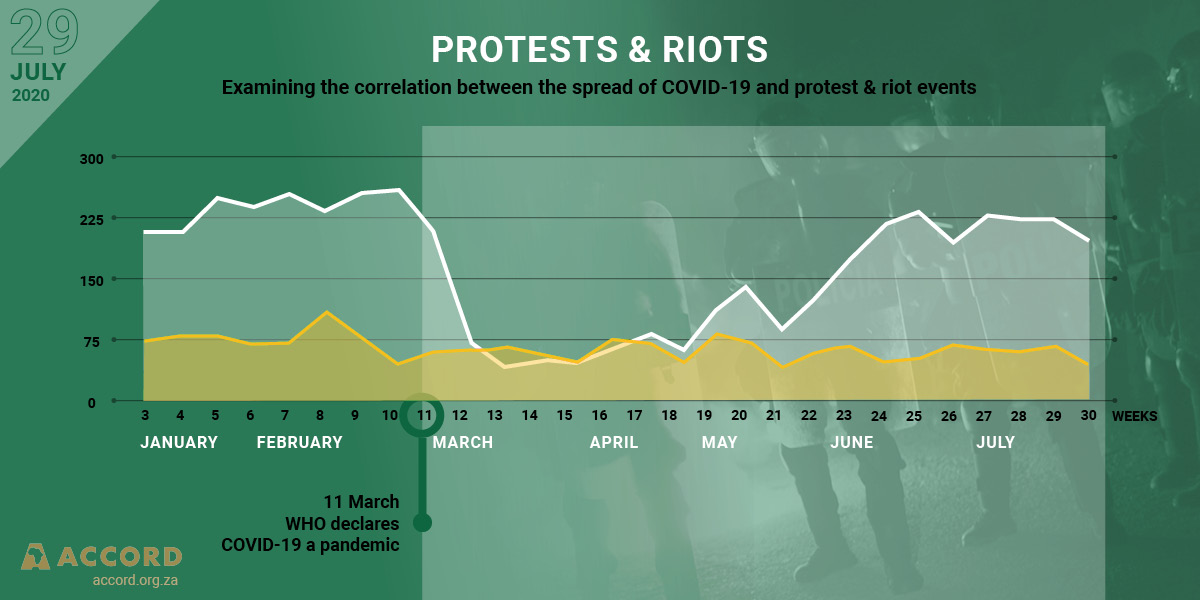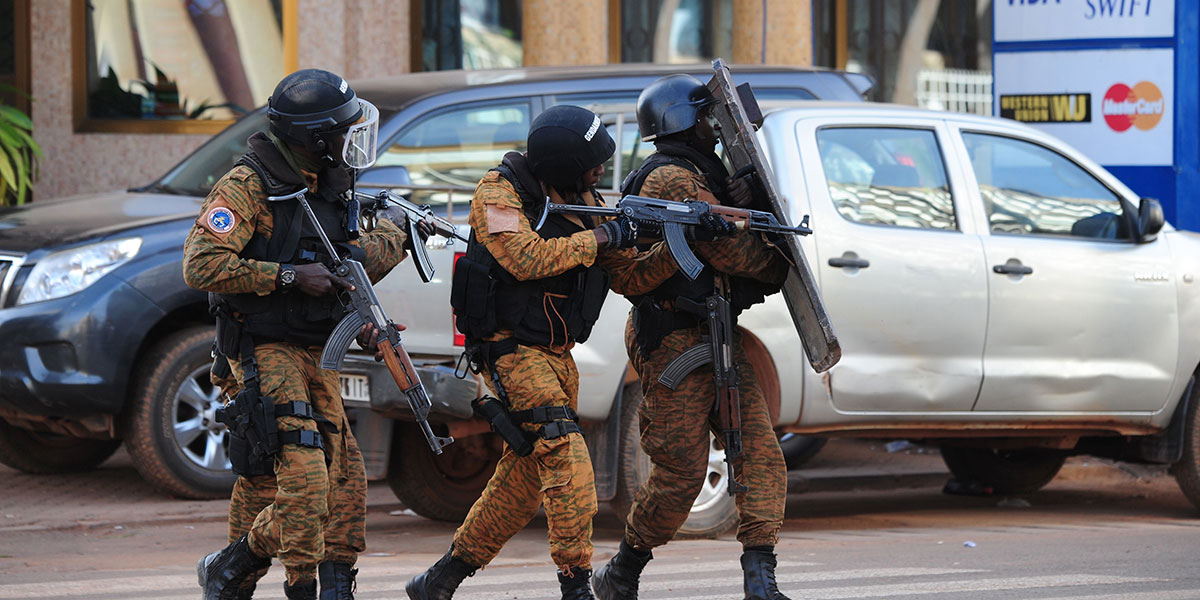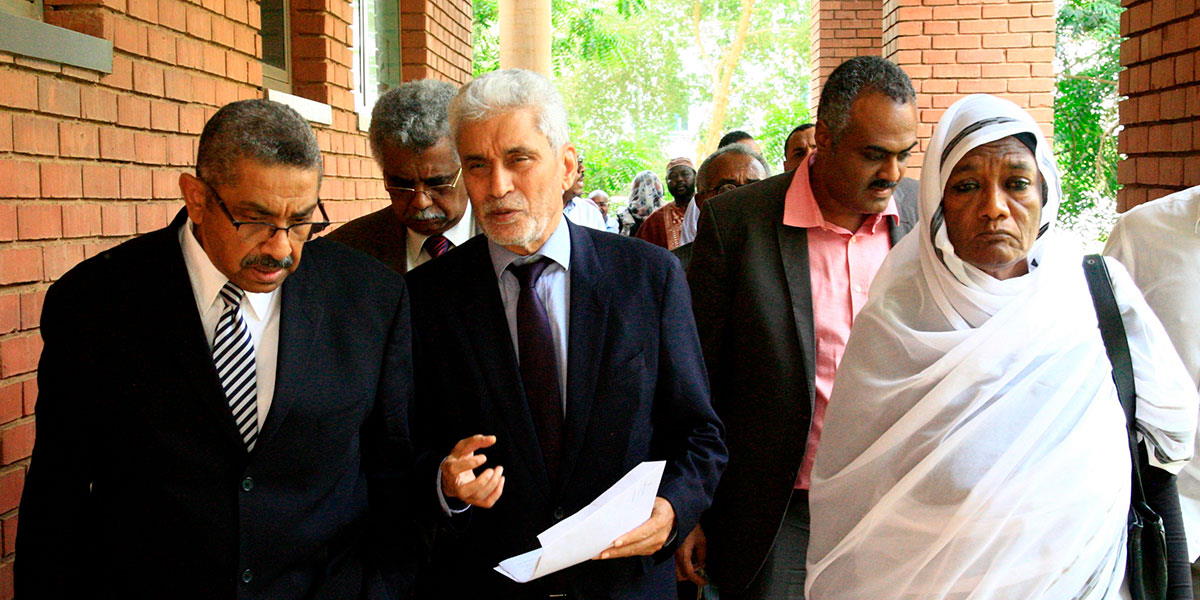In this week’s Monitor, we feature Professor Mohamed Lebatt, principal strategic adviser to the chairperson of the African Union Commission and special envoy to Sudan. He reflects on the affect the COVID-19 lockdown measures, including international travel restrictions, are having on mediation in Africa.
Professor Kwesi Aning, director of the Faculty of Academic Affairs and Research at the Kofi Annan International Peacekeeping Training Centre, writes about how security agencies in West Africa in general, and Ghana in particular, are coping with the dual pressures of COVID-19 and violent extremism.
Edward Mulbah, national executive director for the Liberia Peacebuilding Office, reports on the impact of COVID-19 on peacebuilding in Liberia to date, and the recommendations made to the Government of Liberia to prevent COVID-19-related unrest and conflict.
Lastly, the Monitor’s editorial team analyses the first 165 days of COVID-19 in Africa and finds that the emerging pattern, despite more dire predictions, is one of resilience rather than collapse, chaos and conflict.

